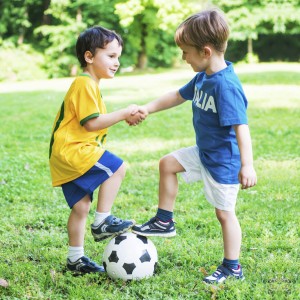3/6/16 blog post
how to raise good losers
 Football star Cam Newton got it all wrong when he declared, “Show me a good loser and I’ll show you a loser,” as an excuse for his rude behavior after his team’s defeat in the Super Bowl.
Football star Cam Newton got it all wrong when he declared, “Show me a good loser and I’ll show you a loser,” as an excuse for his rude behavior after his team’s defeat in the Super Bowl.
Teaching our kids how to deal with adversity, or how to be a good loser, is one of the most important skills that they need to learn.
Good and bad stuff happens to us every day. It’s easy to enjoy life’s successes, but how we respond to life’s setbacks determines our happiness. Psychologists call this resiliency. Every day I work with kids who have survived terrible situations. Some are victims of horrific sexual abuse, or live in severely dysfunctional families. Others are trying to grapple with the emotional turbulence of their parent’s divorce, or the death of a sibling.
Some of these emotional scars will resonate throughout their childhood and beyond. Other children figure out a way to put bad stuff in life’s rearview mirror and lead healthy and productive lives. Can we teach resiliency at a young age so as to prepare kids to deal with life’s tough times? The experts say we can. Here are the two attributes of resilient kids.
First, kids with good resiliency skills have at least one honest and loving adult in their lives. These caring relationships act as an antidote to the toxic effects of life’s traumas. The adult acts as a role model and a beacon of hope. Kids need to see that it is possible to survive bad times. The relationship provides the adult with an opportunity to coach kids on how to navigate stressful events.
Most importantly, these relationships promote resiliency because they affirm to a child two critically important messages: "I love you," and "These bad times will pass."
The second attribute of resilient kids is that they think about the world differently than others. When confronted with adversity, they don’t overgeneralize and think that everything in life is bad. I learned about this many years ago from a 12-year-old girl who had been sexually abused by her teenage babysitter. I asked this youngster if she was fearful of being around teens. She remarked that she had been around teens “my entire life” (which I thought was cute coming from a 12 year old), and they were always nice to her. She wasn’t going to let one bad experience erase all of the other good interactions.
Teach your kids to be good losers. Focus on developing a superb relationship with them. Help them think about adversity in a positive and balanced manner.
Good losers make happy people.

